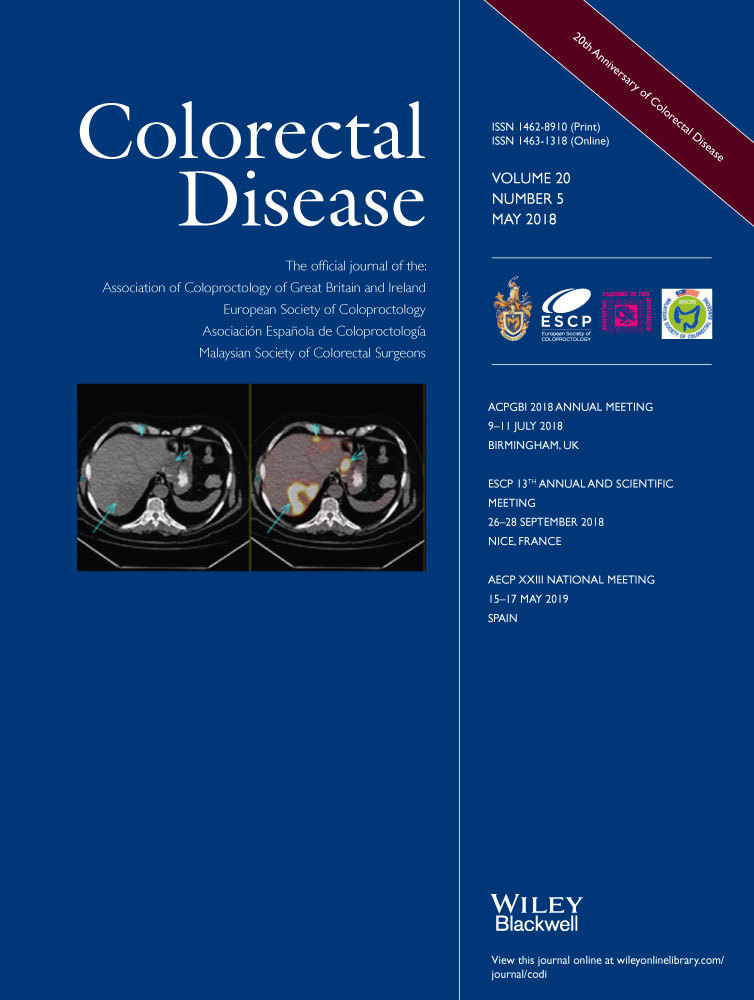The relationship between 18F-FDG-PETCT-derived markers of tumour metabolism and systemic inflammation in patients with recurrent disease following surgery for colorectal cancer
Abstract
Aim
18F-fluorodeoxyglucose positron emission tomography-computed tomography (18F-FDG-PETCT)-derived markers of tumour metabolism have been reported to have prognostic significance in a variety of tumours. Host inflammation is also recognized to have prognostic significance. The aim of the present study was to investigate the relationship between these markers and host systemic inflammation in patients undergoing elective surgery for colorectal cancer.
Method
Patients with histologically confirmed colorectal cancer who underwent elective surgery between 2008 and 2015 and also underwent 18F-FDG-PETCT at a single centre were included (n = 103). The neutrophil–lymphocyte ratio (NLR) and modified Glasgow Prognostic Score (mGPS) were derived from routine blood tests. The maximum standardized uptake (SUVmax), peak standardized uptake (SUVpeak), metabolic tumour volume (MTV) and total lesion glycolysis (TLG) were measured.
Results
There was no association between 18F-FDG-PETCT measures of tumour metabolism and systemic inflammation in the 33 patients who underwent preoperative imaging. Of the 70 patients with recurrent disease who underwent 18F-FDG-PETCT during follow-up, patients with NLR ≥ 5 had a significantly higher SUVmax (20 vs 7, P = 0.002), SUVpeak (14 vs 5, P < 0.001), MTV (29 g vs 2 g, P = 0.001) and TLG (338 g vs 9 g, P < 0.001). Similarly, patients with a mGPS of 1–2 at the time of 18F-FDG-PETCT had a significantly higher median SUVmax (11 vs 6, P = 0.048), SUVpeak (8 vs 4, P = 0.046), MTV (13 ml vs 2 ml, P = 0.005) and TLG (146 g vs 10 g, P = 0.004).
Conclusion
The present study reports a direct association between 18F-FDG-PETCT-derived measures of tumour metabolism and systemic inflammation in patients with recurrent colorectal cancer.




